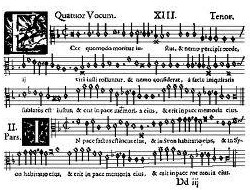The righteous perishes
== The Righteous Perishes ==
The Righteous Perishes is a phrase that originates from the Bible, specifically from the book of Isaiah in the Old Testament. The phrase is often interpreted to reflect the untimely death or suffering of virtuous individuals, and it has been the subject of theological, philosophical, and literary discussions.
Biblical Context[edit | edit source]
The phrase "The righteous perishes" is found in Isaiah 57:1, which states: "The righteous perishes, and no man takes it to heart; merciful men are taken away, while no one considers that the righteous is taken away from evil." This verse is part of a larger discourse in the book of Isaiah, which addresses the moral and spiritual state of the people of Israel.
Theological Interpretations[edit | edit source]
The phrase has been interpreted in various ways by theologians and scholars. Some view it as a lamentation over the loss of good and just individuals in a corrupt society. Others see it as a divine act of mercy, suggesting that the righteous are taken away to spare them from impending evil or suffering.
Philosophical Implications[edit | edit source]
Philosophically, the phrase raises questions about the nature of justice and the problem of evil. It challenges the notion of a just world where good deeds are always rewarded and evil deeds are punished. The untimely death of the righteous can be seen as a paradox that invites deeper reflection on the human condition and the mysteries of divine providence.
Literary References[edit | edit source]
The theme of the righteous perishing has been explored in various literary works. Authors and poets have used this motif to highlight the fragility of goodness in a world fraught with injustice and suffering. It serves as a powerful narrative device to evoke empathy and moral contemplation among readers.
Cultural Impact[edit | edit source]
The concept of the righteous perishing has permeated various aspects of culture, including art, music, and film. It often appears in discussions about martyrdom, heroism, and the sacrifices made by individuals for the greater good. The phrase continues to resonate in contemporary discourse, reflecting ongoing concerns about morality and justice in society.
See Also[edit | edit source]
References[edit | edit source]
External Links[edit | edit source]
Search WikiMD
Ad.Tired of being Overweight? Try W8MD's physician weight loss program.
Semaglutide (Ozempic / Wegovy and Tirzepatide (Mounjaro / Zepbound) available.
Advertise on WikiMD
|
WikiMD's Wellness Encyclopedia |
| Let Food Be Thy Medicine Medicine Thy Food - Hippocrates |
Translate this page: - East Asian
中文,
日本,
한국어,
South Asian
हिन्दी,
தமிழ்,
తెలుగు,
Urdu,
ಕನ್ನಡ,
Southeast Asian
Indonesian,
Vietnamese,
Thai,
မြန်မာဘာသာ,
বাংলা
European
español,
Deutsch,
français,
Greek,
português do Brasil,
polski,
română,
русский,
Nederlands,
norsk,
svenska,
suomi,
Italian
Middle Eastern & African
عربى,
Turkish,
Persian,
Hebrew,
Afrikaans,
isiZulu,
Kiswahili,
Other
Bulgarian,
Hungarian,
Czech,
Swedish,
മലയാളം,
मराठी,
ਪੰਜਾਬੀ,
ગુજરાતી,
Portuguese,
Ukrainian
Medical Disclaimer: WikiMD is not a substitute for professional medical advice. The information on WikiMD is provided as an information resource only, may be incorrect, outdated or misleading, and is not to be used or relied on for any diagnostic or treatment purposes. Please consult your health care provider before making any healthcare decisions or for guidance about a specific medical condition. WikiMD expressly disclaims responsibility, and shall have no liability, for any damages, loss, injury, or liability whatsoever suffered as a result of your reliance on the information contained in this site. By visiting this site you agree to the foregoing terms and conditions, which may from time to time be changed or supplemented by WikiMD. If you do not agree to the foregoing terms and conditions, you should not enter or use this site. See full disclaimer.
Credits:Most images are courtesy of Wikimedia commons, and templates Wikipedia, licensed under CC BY SA or similar.
Contributors: Prab R. Tumpati, MD

